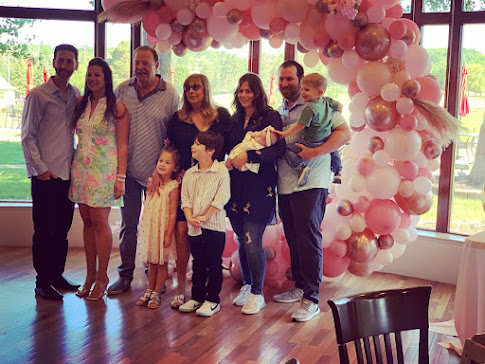Creating Lasting Memories: The Joyful Jewish Baby Naming Ceremony | Ben Silverberg
Welcoming a new life into the world is a joyous occasion celebrated by various cultures in unique ways. For the Jewish community, a jewish newborn ceremonies holds immense significance as it not only introduces the newborn to family and friends but also marks their formal entry into the Jewish faith. In this article, we will explore the beautiful tradition of the Jewish baby naming ceremony, delving into its rich history, customs, and the joy it brings to the lives of families. Join us as we witness the cherished moments that create lasting memories during this special event in the life of Ben Silverberg and his family.
1. The Significance of Jewish Baby Naming
The act of naming a baby is considered a moment of great importance in Jewish tradition. It symbolizes the child's individuality and identity within the Jewish community. This tradition is deeply rooted in history, tracing back to biblical times, when names were chosen to reflect the child's destiny and character.
2. Preparations and Invitations
2.1 Selecting the Date
Choosing the perfect date for the baby naming ceremony involves considering various factors such as family availability, auspicious days, and religious significance. Ben Silverberg's family carefully selected a date that held personal significance for them.
2.2 Crafting the Guest List
Family and friends play an integral role in this celebration. Crafting the guest list involves inviting close relatives, friends, and members of the local Jewish community who share in the joy of welcoming the newest member.
3. The Ceremony Begins
3.1 Welcoming the Guests
As the guests arrive, they are warmly welcomed by the parents and offered traditional Jewish delicacies and refreshments.
3.2 Lighting the Shabbat Candles
The ceremony usually takes place on a Friday evening, just before the beginning of the Shabbat. Lighting the Shabbat candles signifies the start of the ceremony and the sacredness of the occasion.
3.3 Introduction and Blessings
The ceremony commences with the introduction of the baby by the parents. Blessings are recited, expressing gratitude for the gift of new life and seeking blessings for the baby's future.
4. The Act of Naming
4.1 Giving the Hebrew Name
The highlight of the ceremony is when the baby is officially named. In Jewish tradition, names hold deep meanings and are chosen based on family heritage or a desire for the child to embody certain qualities.
4.2 Honoring Loved Ones
It is common to name the baby after a deceased relative, symbolizing the continuity of life and honoring the memory of loved ones.
5. Celebratory Feast
After the ceremony, a joyful feast awaits the guests. Delicious kosher dishes and desserts are served, and the atmosphere is filled with laughter and love.
6. Music and Dancing
6.1 Klezmer Music
Klezmer music, with its lively and upbeat tunes, adds an element of festivity to the occasion. Guests often join in traditional Jewish dancing, expressing their happiness and spreading the joyous spirit.
7. Presentation of Gifts
7.1 Traditional Gifts
Guests present gifts to the baby as a token of love and blessings. Traditional Jewish gifts often include religious items, such as a Kiddush cup or a mezuzah.
8. The Role of Community
8.1 Strengthening Bonds
The baby naming ceremony not only celebrates the birth of the child but also strengthens the sense of community within the Jewish faith.
Conclusion
The Jewish baby naming ceremony is a cherished tradition that creates lasting memories for families and communities. From the significance of names to the joyous celebrations and the spirit of togetherness, this sacred event fills the hearts of all involved with love and happiness.


.jpg)

Comments
Post a Comment